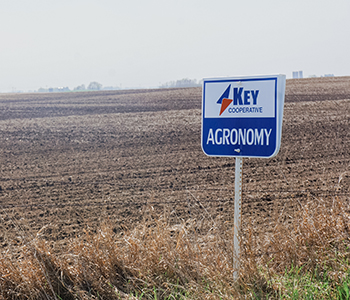2022 Agronomy Year in Review
Nov 21, 2022

Alex Branderhorst
Sales Agronomist
It's hard to believe we're nearing the end of another crop year. Looking back on the 2022 season, we recall how we were met with challenges and obstacles. A cool, damp spring led to some delays in planting. Those conditions were followed by an abnormally dry summer. In May through August, we were five inches below normal rainfall throughout much of our service area. We missed a lot of "timely" rains for our corn and soybeans, and yields just aren't quite what they were a year ago (when we did receive those timely rains).
Nevertheless, it's not a total loss. We are seeing respectable yields in both corn and soybeans this fall, which is a testament to how far we've come with our hybrids and varieties, as well as some of our management practices.
For example, in terms of management practices, fungicides have become an important part of both corn and soybean plans. In drier conditions, we don't necessarily have the environment for much disease pressure. However, we still see a yield response to fungicides due to their ability to mitigate stress in the plant, which can help with respiration and moisture conservation.
Tar spot has also been a topic of discussion. It showed up earlier than usual this year, and it is a cause for concern. Corn fungicide should be in our plans moving forward, with the possibility of a second application in severe cases. Talk to your Key Cooperative Agronomist about tar spot management, from hybrid selection to fungicides and crop rotation.
Remember, each year is different. Next year will have its own set of challenges, but we can take what we learn and incorporate that knowledge going forward to achieve our goals.
Thank you for making Key Cooperative your essential business partner!
Sales Agronomist
It's hard to believe we're nearing the end of another crop year. Looking back on the 2022 season, we recall how we were met with challenges and obstacles. A cool, damp spring led to some delays in planting. Those conditions were followed by an abnormally dry summer. In May through August, we were five inches below normal rainfall throughout much of our service area. We missed a lot of "timely" rains for our corn and soybeans, and yields just aren't quite what they were a year ago (when we did receive those timely rains).
Nevertheless, it's not a total loss. We are seeing respectable yields in both corn and soybeans this fall, which is a testament to how far we've come with our hybrids and varieties, as well as some of our management practices.
For example, in terms of management practices, fungicides have become an important part of both corn and soybean plans. In drier conditions, we don't necessarily have the environment for much disease pressure. However, we still see a yield response to fungicides due to their ability to mitigate stress in the plant, which can help with respiration and moisture conservation.
Tar spot has also been a topic of discussion. It showed up earlier than usual this year, and it is a cause for concern. Corn fungicide should be in our plans moving forward, with the possibility of a second application in severe cases. Talk to your Key Cooperative Agronomist about tar spot management, from hybrid selection to fungicides and crop rotation.
Remember, each year is different. Next year will have its own set of challenges, but we can take what we learn and incorporate that knowledge going forward to achieve our goals.
Thank you for making Key Cooperative your essential business partner!